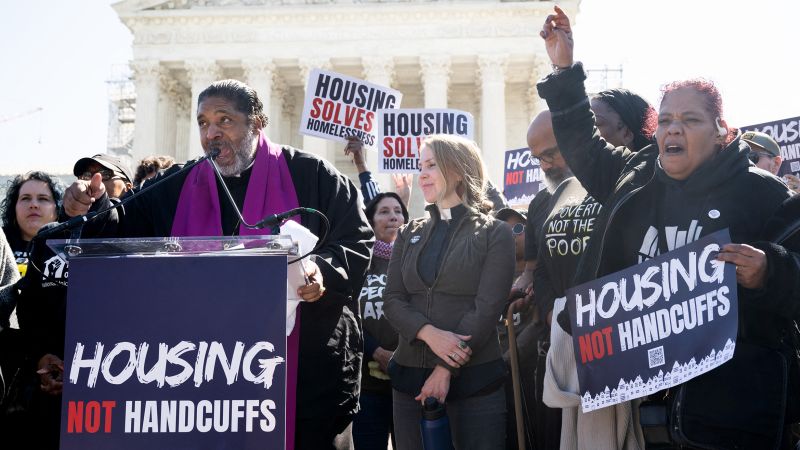The Supreme Court recently considered whether ticketing homeless people constitutes “cruel and unusual” punishment in violation of the Eighth Amendment, with the justices grappling with the complexity of the issue for over two hours. While some justices expressed concerns about criminalizing homelessness, others worried about restricting city authority to regulate public health and safety in homeless encampments. The focus of the debate was on whether anti-camping ordinances in Grants Pass, Oregon, targeted conduct or the status of being homeless, with the city asserting that the rules target conduct while plaintiffs argue that enforcement disproportionately affects the unhoused population.
The case involves police issuing tickets to individuals sleeping in public spaces under anti-camping ordinances in Grants Pass, with fines ranging from $295 to over $500 for non-payment. This case is considered a landmark appeal concerning homeless Americans and is closely observed by cities and states grappling with a significant increase in homelessness across the nation. The number of homeless individuals in the United States has increased by 12% from 2022 to 2023, impacting over 650,000 individuals on any given night according to the US Department of Housing and Urban Development.
Chief Justice John Roberts and other conservative justices raised questions about the ambiguity of the ordinance, which does not explicitly prohibit homelessness, and the difficulty of defining someone’s status as homeless on a nightly basis. The distinction between status and conduct was a central point of contention, particularly as a previous Supreme Court ruling found that criminalizing drug addiction was considered “cruel and unusual” punishment as it sought to punish an individual’s status rather than their actions. The court’s decision will have significant implications on how cities address homelessness and regulate public spaces.
The case arose from a lawsuit filed by city residents experiencing homelessness against Grants Pass, with the 9th US Circuit Court of Appeals ruling in favor of the plaintiffs. The court held that anti-camping ordinances could not be enforced against homeless individuals who were sleeping in public spaces or in their cars when no alternative shelter was available. Grants Pass officials argued that the Eighth Amendment’s prohibition on cruel and unusual punishment was not intended for issuing fines, but rather for more severe forms of punishment. A decision in the case, City of Grants Pass v. Johnson, is anticipated by the end of June, paving the way for potential changes in how cities address homelessness.
The issue of criminalizing homelessness remains a contentious and complex legal matter, with implications for individuals experiencing homelessness, city regulations, and the interpretation of the Eighth Amendment. The Supreme Court’s deliberations highlight the challenges of drawing a clear line between status and conduct when addressing homelessness-related issues. The outcome of this case will likely shape future policies and legal approaches to addressing homelessness in a manner that upholds constitutional principles while also addressing public health and safety concerns in communities nationwide. The decision is eagerly awaited by stakeholders across the country as it will have far-reaching consequences for how cities and states navigate the delicate balance between addressing homelessness and upholding individual rights.













